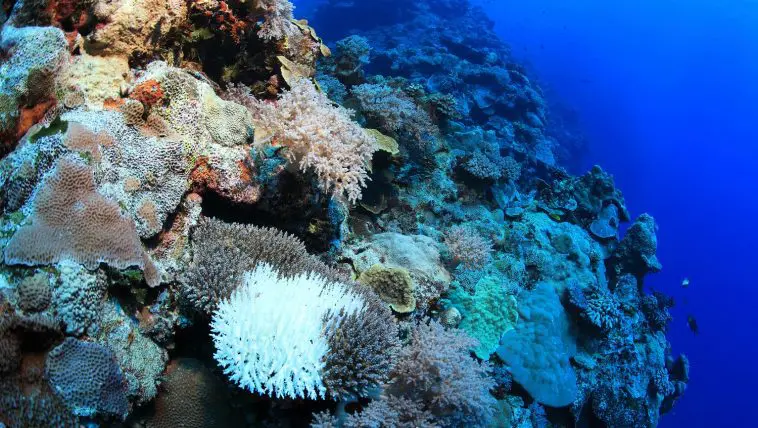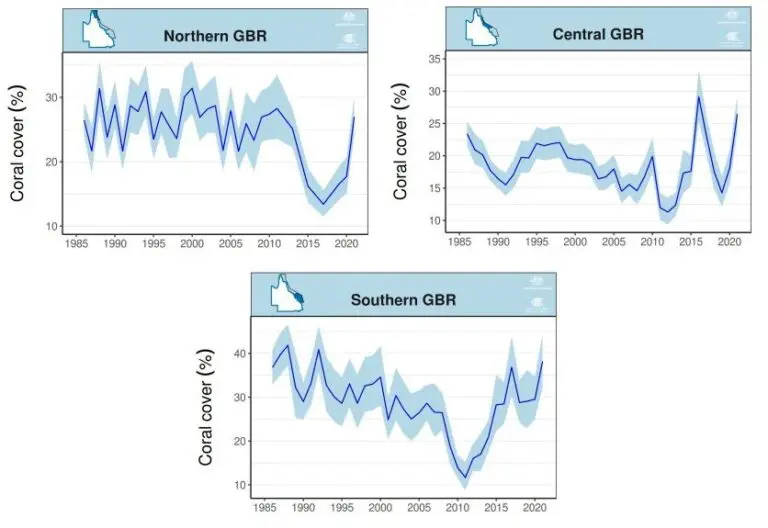[Originally published as The Great Barrier Reef Is Doing Well, Despite What the Alarmists Have Said]
Over the years, the headlines have been dire. Just two years ago, USA Today claimed:
Great Barrier Reef can’t heal after global warming damage
Similar news outlets ran similar headlines because a study showed that the number of new corals being produced was significantly lower than normal.
The problem, of course, is that such studies have no context whatsoever. Yes, the Great Barrier Reef went through some tough years. Lots of corals experienced bleaching, a process by which they expel the algae that live inside them.
Since the algae provide a significant amount of food to the corals, bleaching can be deadly. However, it’s a process we still don’t understand well, and there is some evidence that it is actually a mechanism designed to help the coral adapt to changing conditions.
In addition, bleaching events have been happening for more than 300 years, and evidence suggests they happened more frequently in the late 1800s, the mid-1700s, and the late 1600s than they do today.
Given these facts, it’s not surprising that the doom and gloom headlines about the Great Barrier Reef have been shown to be completely wrong. The Australian Government, in collaboration with the Australian Institute of Marine Science, has been monitoring the health of the reef since 1985. They have collected an enormous amount of data, but I just want to focus on Figures 3, 4, and 5, which show the amount of coral cover in the Northern, Central, and Southern Great Barrier Reef.
The blue lines represent the percent of the area that is covered in coral, and the light-blue shading represents the uncertainty in that value. Notice that in each part of the Great Barrier Reef, there are times when the coral coverage is high, and there are times when it is low. Sometimes, the coral coverage is very low. Nevertheless, right now, coverage is nearly as high as it has ever been.
Contrary to what USA Today claimed just two short years ago, then, the Great Barrier Reef has recovered from its low point over the past few decades.
Does that mean there’s nothing wrong with the Great Barrier Reef?
Of course not! With less than 40 years of direct study, we really don’t know what the overall status of the reef should be, so we have no idea whether what we are seeing now is good, bad, or indifferent.
My point is simply that it’s too easy for scientists and the media to look at a short-term trend (like 2010-2106 in the Northern Great Barrier Reef) and draw irrational conclusions. In the end, that not only hurts the cause of science, but it also makes it nearly impossible for us to figure out how best to care for the creation God has given us.







